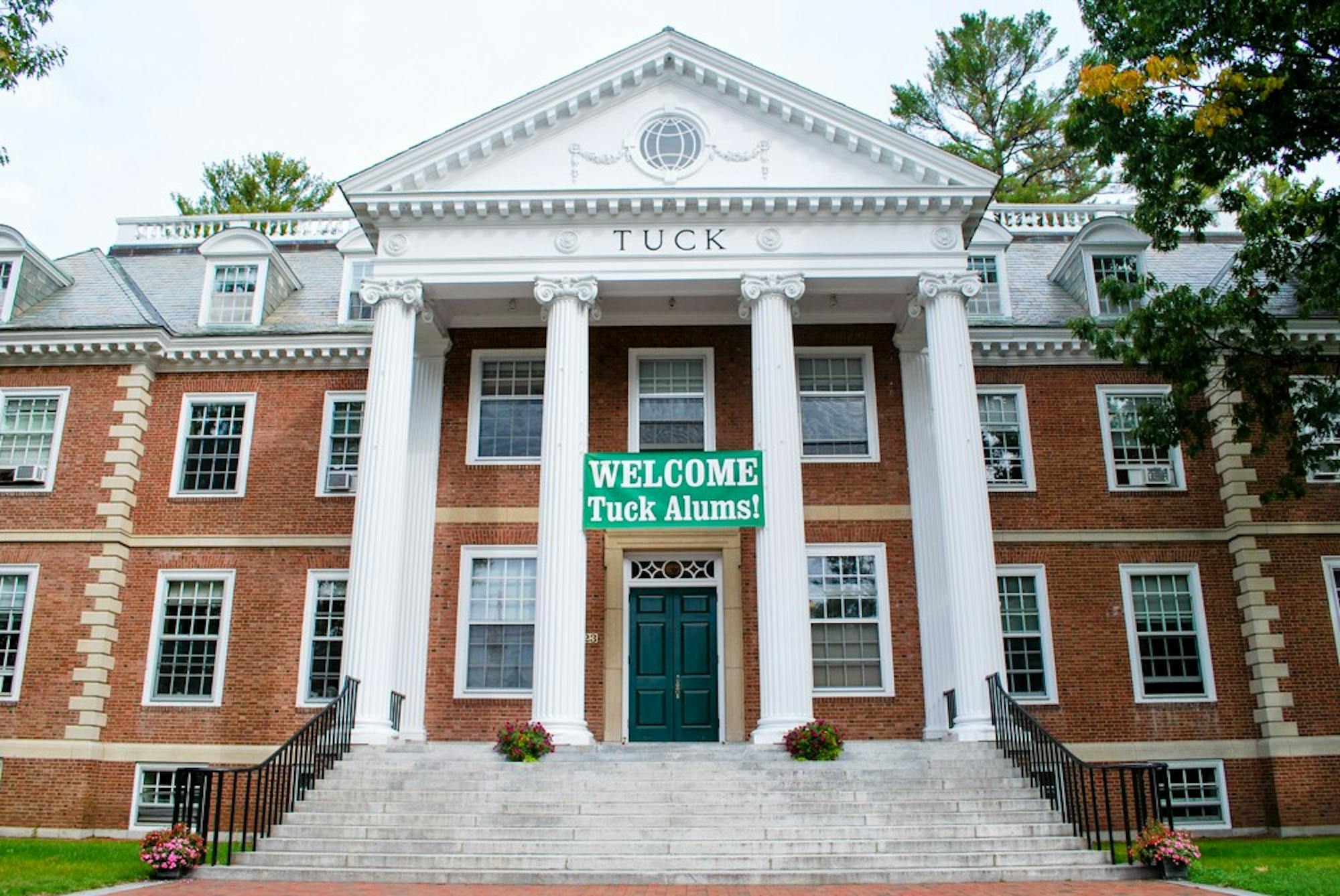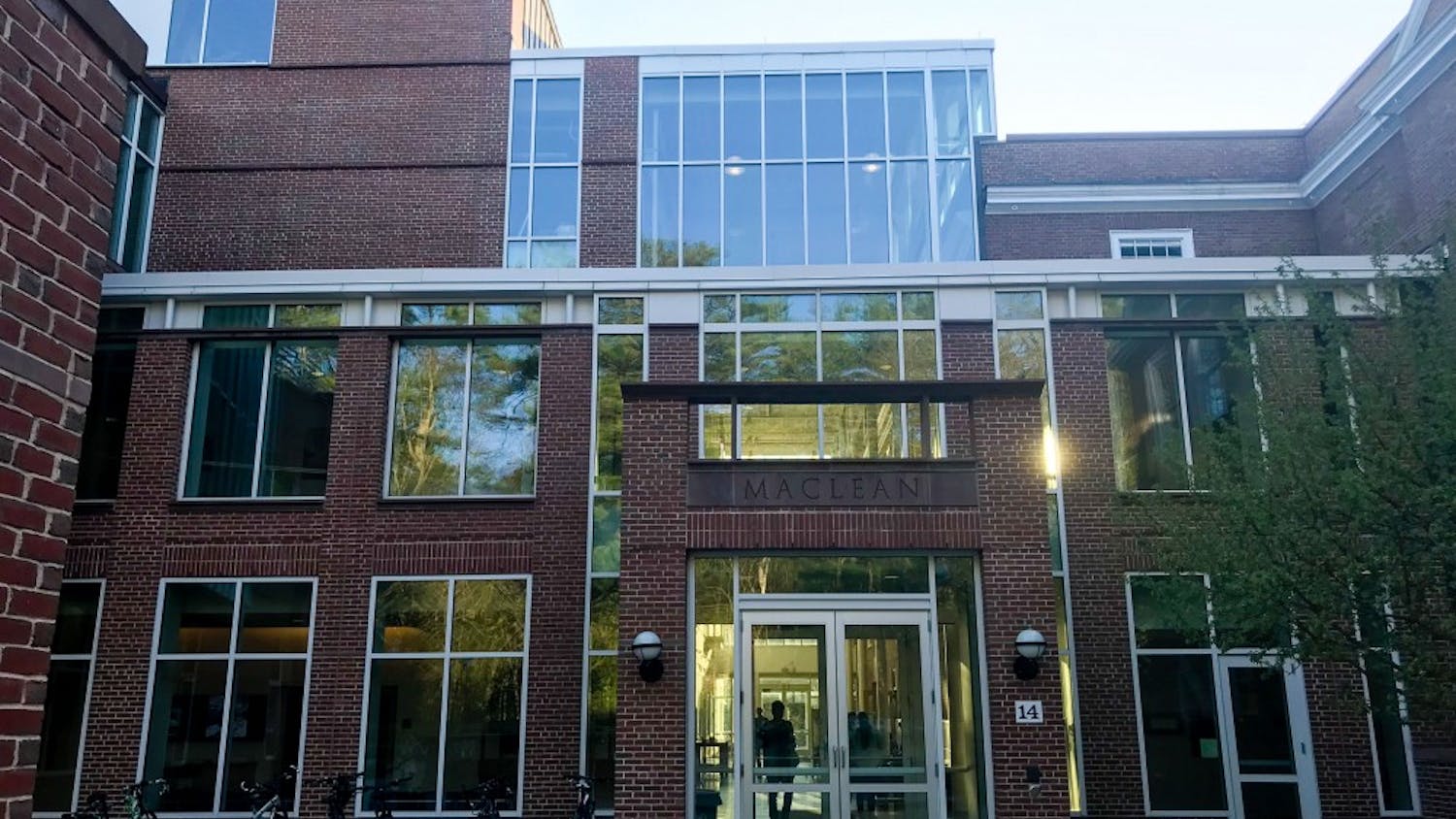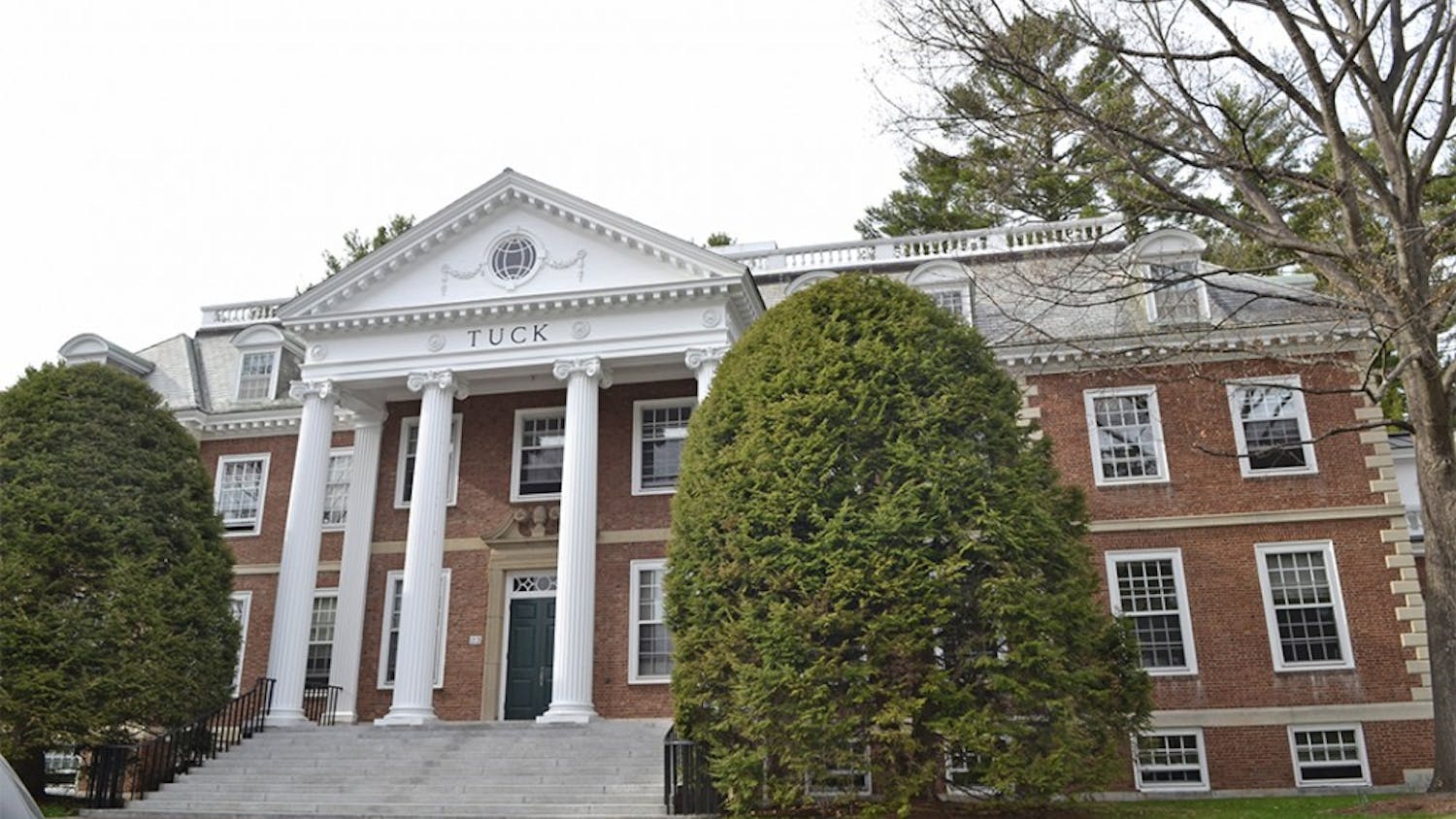The Tuck School of Business recently received a $25 million donation from the Bakala Foundation — the largest donation in the graduate school’s history.
Michaela and Zdeněk Bakala Tu ’89 — who created the Bakala Foundation in 2007 to support educational causes — made the donation to benefit the TuckGO program, which facilitates international educational opportunities to satisfy Tuck’s global learning graduation requirement. The donation will also be used to create a central hub at Tuck for students, professors and TuckGO administrators called the Bakala Global Suite.
TuckGO allows students to explore different topics in business by offering courses that travel to a varying of countries to study differing topic areas. Tuck dean Matthew Slaughter said that many of the courses are team-taught by two Tuck professors and often include faculty members from other departments in the College. Past courses have covered the intersection of entrepreneurship and technology in Israel as well as technology innovation and venture capital in China.
“Many of the students here at Tuck think of the TuckGO experiences as one of the most transformative parts of their MBA education,” said TuckGO faculty director and marketing professor Peter Golder. “[Tuck GO] allows students to take some risks because they can have exposure to industries they may not have worked in before or explore countries they may be interested in working in.”
David Fayngor Tu ’20, who participated in a TuckGO program in Rome and Milan last spring, said that TuckGO “felt like a capstone to my first year at Tuck, moving theory into practice in an international setting.”
The donation from the Bakala Foundation will be used to fund students’ international experiences, which Slaughter believes reflects Zdeněk’s Bakala’s experiences coming to Tuck after fleeing communist Czechoslovakia.
“[Zdeněk] sees the TuckGO program as an essential dimension of learning, reflecting his life experiences,” Slaughter said.
After graduating Tuck, Zdeněk Bakala worked in investment banking in both New York and London before returning to the Czech Republic to form Credit Suisse First Boston’s subsidiary in Prague. Labeled one of the “capitalist pioneers of Prague” by the New York Times in 1995, Bakala helped privatize and restructure companies such as Czech automobile company Škoda Auto, forged financial standards for the developing country and helped establish the Prague Stock Exchange.
In 2004, Zdeněk Bakala co-founded BXR Group, a global investment group that soon acquired Karbon Invest, owner of OKD, the Czech Republic’s largest coal mining corporation. His company, which was valued once at over two billion dollars, struggled after the global decline of coal prices. The insolvency of BXR’s holding company OKD and its impact on the company’s workers became the subject of political attacks in the Czech Republic in 2016.
Michaela Bakala serves as the chairwoman of the Bakala Foundation and previously worked as the press department head for the Czech Republic’s Civil Democratic Party.
Bakala formed the then-named Zdeněk Bakala Foundation in 2007. The foundation’s philanthropy, inspired by Zdeněk and Michaela’s own personal journeys, has been focused on “supporting freedom, education and connectivity to the world … which resonates with the goals of the TuckGO program,” Slaughter said.
Golder said that the donation will help Tuck continue to offer courses, expand their capacity to meet increasing student demand and create more formalized opportunities for students to share their experiences.
Linda Horner Tu ’20, who visited Ireland and the United Kingdom on a TuckGO trip to study Brexit, said that, the program helps people “recognize where you might be wrong about other cultures, helps you become more open minded, which, in turn, can make you a better leader.”
Golder said that they are hoping to expand TuckGO to offer more courses in Africa, possibly Ethiopia, in addition to growing their current offerings in Ghana, Morocco and South Africa. He also hopes the donation will help meet student demand to pursue non-profit work.
Slaughter said that perhaps most importantly, the donation “will allow the creativity and innovation of the program to continue and evolve.”




